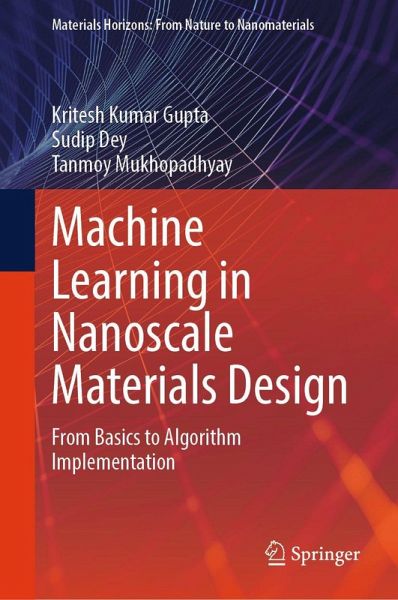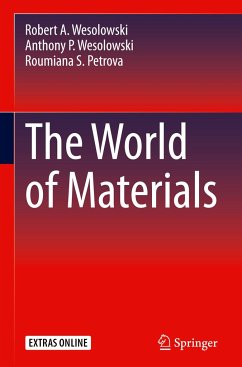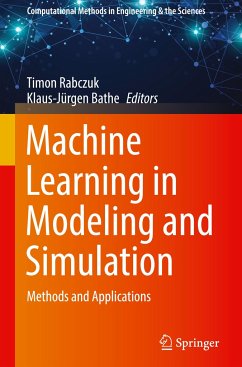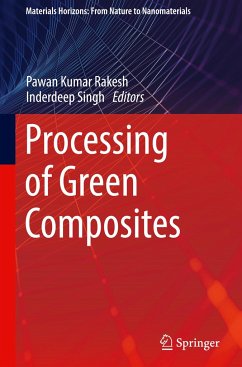
Machine Learning in Nanoscale Materials Design
From Basics to Algorithm Implementation
Versandkostenfrei!
Erscheint vorauss. 12. November 2025
136,99 €
inkl. MwSt.

PAYBACK Punkte
68 °P sammeln!
This book provides a comprehensive overview of data-driven nano-scale characterization of materials. It covers the concept of accelerated computational characterization of nano-materials by individually addressing the detailed understanding of molecular dynamics simulation, machine learning, and interface of molecular dynamics and machine learning for establishing the foundation of materials informatics. It further presents a methodology for integrating molecular simulation with computationally efficient machine learning methods. The book aims to present a comprehensive understanding of the sy...
This book provides a comprehensive overview of data-driven nano-scale characterization of materials. It covers the concept of accelerated computational characterization of nano-materials by individually addressing the detailed understanding of molecular dynamics simulation, machine learning, and interface of molecular dynamics and machine learning for establishing the foundation of materials informatics. It further presents a methodology for integrating molecular simulation with computationally efficient machine learning methods. The book aims to present a comprehensive understanding of the synergy between atomistic simulations and data-driven descriptive analytics. The contents of the book are presented as end-to-end projects for solving a specific problem associated with the structural application of the materials and challenges in performing large-scale molecular dynamics simulations. The proposed book emphasizes on the successful application of machine learning driven molecular dynamics simulation framework in studying low-dimensional and high-dimensional materials, as well as high entropy alloys. It also explores force-field modeling, optimization strategies, uncertainty quantification, sensitivity analysis, and the essential programming skills needed for materials informatics. Readers can expect to explore a range of exciting topics, including a detailed overview of molecular dynamics simulation, the intricate interface between machine learning and simulation techniques, and a data-driven approach to understanding low-dimensional materials. The book offers a comprehensive understanding of data analytics in materials characterization and subsequent data visualization. The computational framework proposed in the book will be useful in envisioning the bottom-up design pathway for harnessing the physical characteristics of materials systems.












